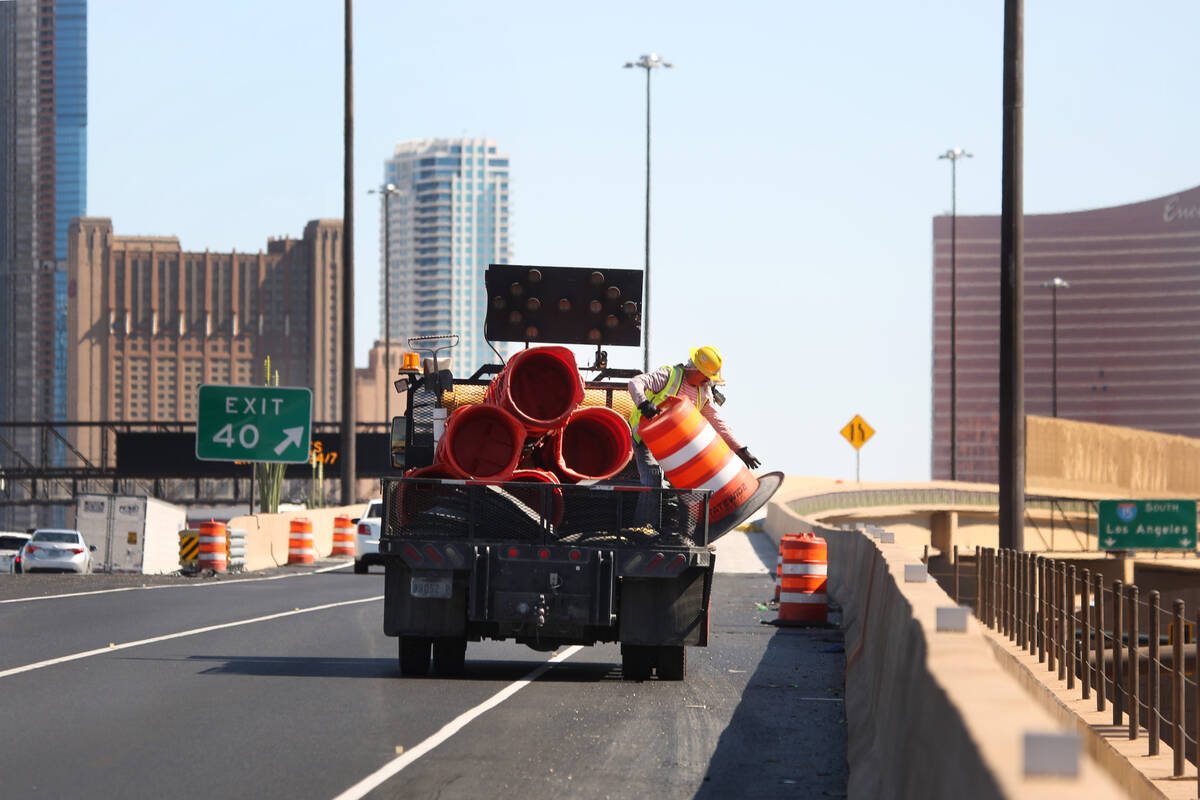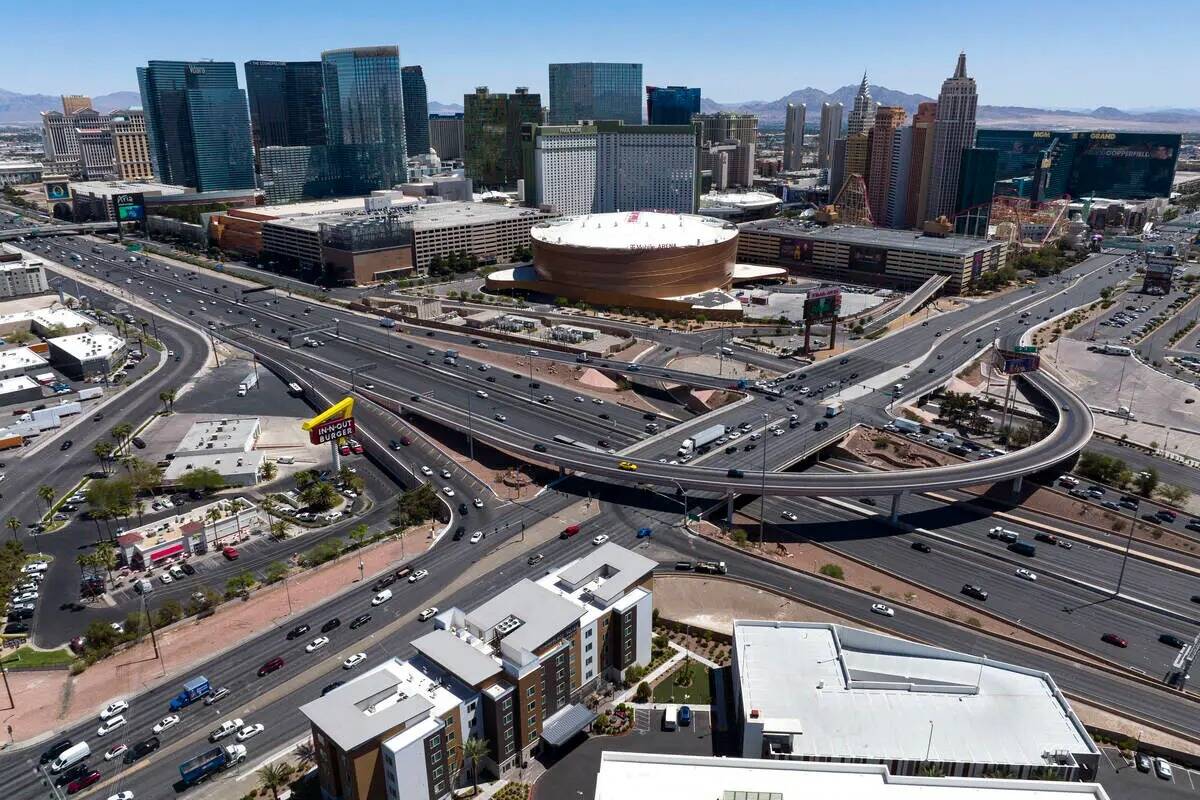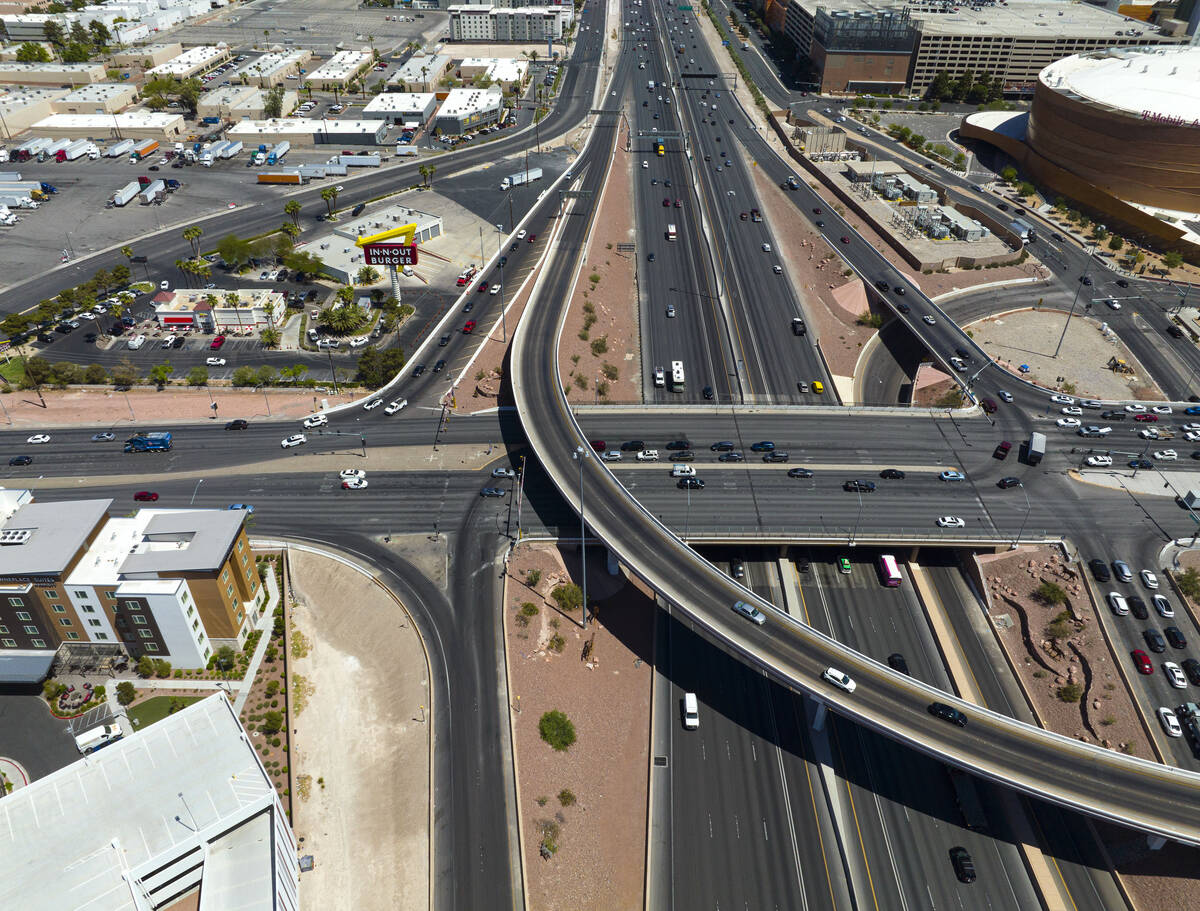Major road projects in Las Vegas don’t just happen overnight
It’s no secret that the running joke among Las Vegas Valley residents is that the unofficial state flower is the orange traffic cone.
With the seemingly endless number of road projects in the valley, it’s not tough to see why so many joke — sometimes without laughing — at all the cones they have to navigate on a daily basis.
There are over 2.3 million people in the Las Vegas metropolitan area and the number keeps growing, which means more vehicles on valley roads. If problem areas aren’t addressed in advance, the gridlock seen today will be nothing compared to what it will be in the future.
After news of work beginning on rebuilding the Interstate 15-Tropicana Avenue interchange hit last week, many readers questioned the timing of the nearly three-year long project. A few cited the potential impacts it could have on events at Allegiant Stadium. Others noted the ongoing U.S. 95 viaduct rehabilitation project and wondered about having two major freeway projects running concurrently.
The $305 million project will revamp the busy interchange and make required enhancements near it to allow for future widening of I-15 down the line.
Projects of this magnitude don’t just happen overnight. They take years of work behind the scenes before construction hits valley roads.
Each project has a multitude of steps it must go through before shovels hit the ground — especially projects costing hundreds of millions of dollars.
“Projects of this size are planned years in advance,” said Justin Hopkins, Nevada Department of Transportation spokesman. “For instance, the I-15/Tropicana Design Build began planning more than seven years ago — long before Allegiant Stadium or T-Mobile Arena were built.”
Hopkins noted there are layers of federal, state, and local requirements attached to projects of this size and impact.
“Especially with regard to environmental and right-of-way concerns, all of which have fairly rigid timelines,” Hopkins said.
The environmental study period for the I-15-Trop project occurred between 2018 and 2019, along with the preliminary engineering. The right-of-way acquisitions, design development and permitting occurred between 2019 and 2021.
The process also includes public outreach to ensure residents and area stakeholders’ concerns are heard and addressed.
The project must also be put out to bid by prospective contractors, a process that involves selecting the winning company based on a combination of project price and construction plan.
Then there is identifying the means of funding for each project. The $305 million price tag for the I-15-Trop project will be covered by $230 million from the state budget, $50 million from a federal grant awarded in 2020 and $25 million from the federal infrastructure bill passed in 2021. That means that although the project has been seven years in the making, $75 million for the project wasn’t identified until the last two years.
Hopkins said that NDOT expected the majority of the project would be paid by state funds, mainly derived from gas tax. Federal funds are always welcomed, he said, because that leaves more money in the state bucket for other projects.
As far as timing goes, Hopkins said NDOT and the Nevada Transportation Board take care to not create too many impacts at one time. He noted the I-515 Viaduct Rehabilitation program is currently tracking ahead of schedule and should be substantially complete long before the biggest impacts of the I-15/Tropicana project take effect in early 2023.
Contact Mick Akers at makers@reviewjournal.com or 702-387-2920. Follow @mickakers on Twitter. Send questions and comments to roadwarrior@reviewjournal.com.

























